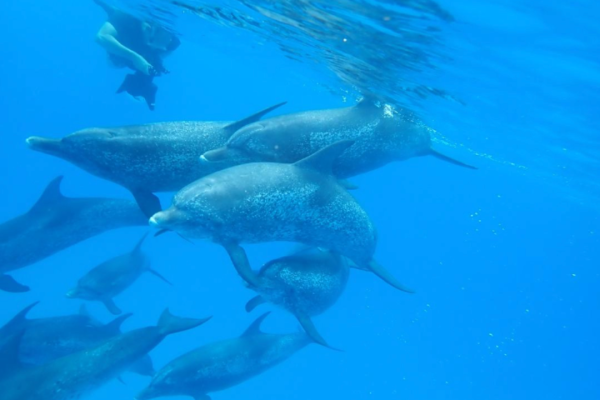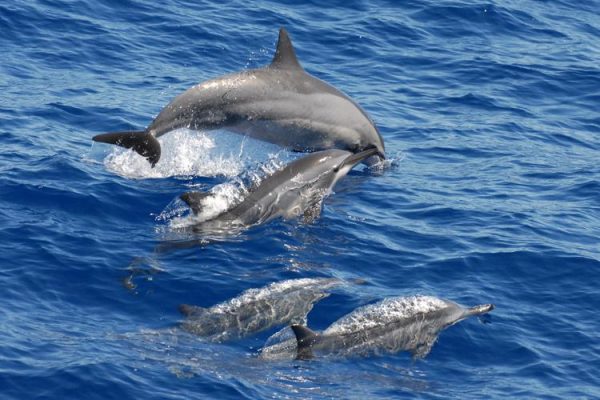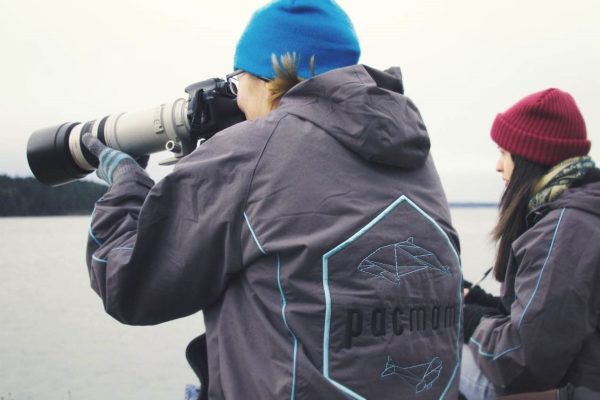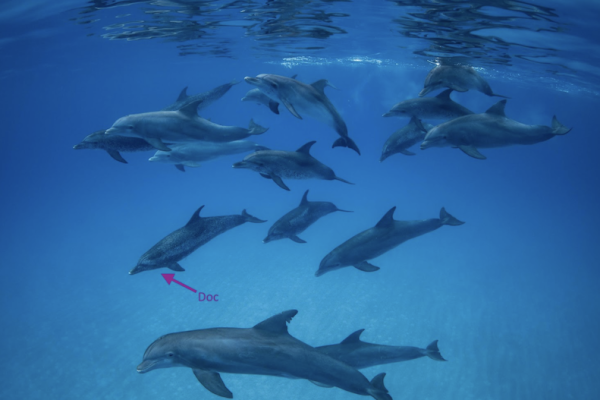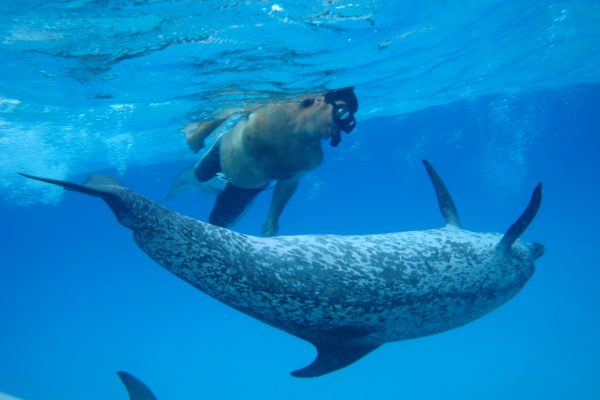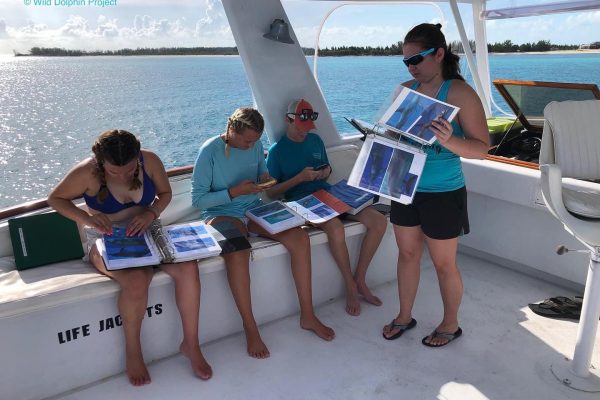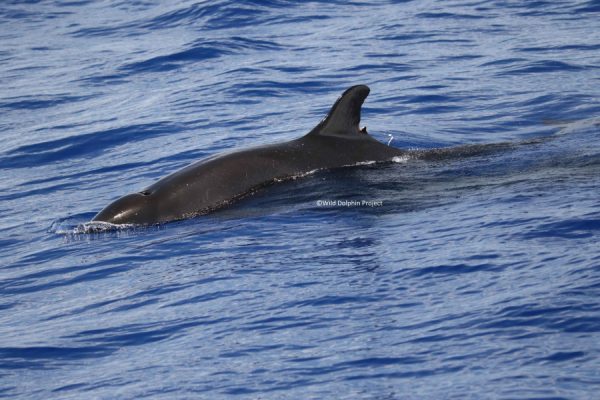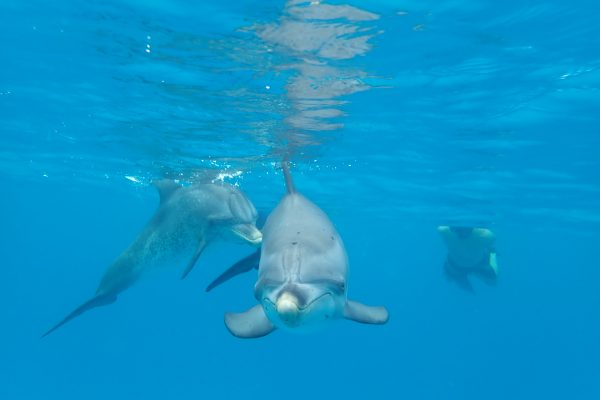Dolphin Discoveries: New Calves & Male Aggression
During Trip 2, we made some fascinating findings and witnessed exciting behavior, including sharks and aggressive males. Read on to learn more! Little Bahama Bank Amanda, an adult female Atlantic spotted dolphin, has a new female calf. (Amanda is a particularly special dolphin, read our blog just about her). We
Discovering Dolphin Anatomy: Dolphins’ Unique Adapations
It’s no secret that at the Wild Dolphin Project, we find dolphins endlessly fascinating. After all, we have been studying them for 40 years! What makes the so interesting? Well, they have unique anatomy designed for a life beneath the waves, from their sleek bodies to sensory superpowers. Read on
Amazing Whale and Dolphin Record Breakers
What’s the largest dolphin in the world? How about the smallest? What whale can hold it’s breath the longest. Read on to find out! Whales, dolphins and porpoises make up a specific group of marine mammals called Cetaceans, and there are around 90 species. The word cetacean comes from the Latin
Dr. Cindy Elliser Returns!
This summer we had Dr. Cindy Elliser return to the R/V Stenella after 13 years away. For those of you who don’t know Cindy, she was with us at Wild Dolphin Project for 10 years as a research assistant as well as both a master’s student and doctoral student at
Animal Behavior: interspecies versus intraspecific interactions
In the Bahamas, the Wild Dolphin Project led by Dr. Denise Herzing, studies both the common bottlenose dolphin (Tursiops truncatus) and the Atlantic spotted dolphin (Stenella frontalis), who coexist on the sandbank. This means they are sympatric — occurring within the same geographic range. While the two species eat
Meet the Team: Captain Pete (Returns!)
After 7 years away, Captain Pete has returned to the Wild Dolphin Project! Captain Pete returns to the project with decades of experience, both with us and other vessels, holding a U.S. Coast Guard 1600-ton master license, open oceans. He filled in for our last two trips of the 2022
Pesky Remoras
The Wild Dolphin Project was started by Dr. Denise Herzing back in 1985. Since then Dr. Herzing, along with her colleagues and graduate students, has put out multiple peer reviewed research papers on the behavior, acoustics, and ecology of the two species we study in the Bahamas: the Atlantic spotted
Interning at the Wild Dolphin Project
For current students, whether that’s as an undergraduate or graduate student, we offer an internship program to gain hands-on experience working as a dolphin field biologist! So what’s it like and what can you expect to learn? Read on. Heading to Bahamas Interns arrive to greet the crew at our
Bonus Sightings : False Killer Whale or Pilot Whale
On our most recent trip to the Bahamas, we had the incredible chance to view a relatively rare marine mammal — the false killer whale (Pseudorca crassidens). These sea wolves are social, intelligent, hunt in packs, and are found in deep offshore waters. They are also entirely black. Adult females
Dolphin Detective
Much of our long-term work studying dolphins in the Bahamas relies on identifying individuals in the population. By tracking individuals we can understand patterns in relationships, communication, and behavior differences between sexes and age classes, among many other things. To do this, sometimes requires a bit of detective work. We

